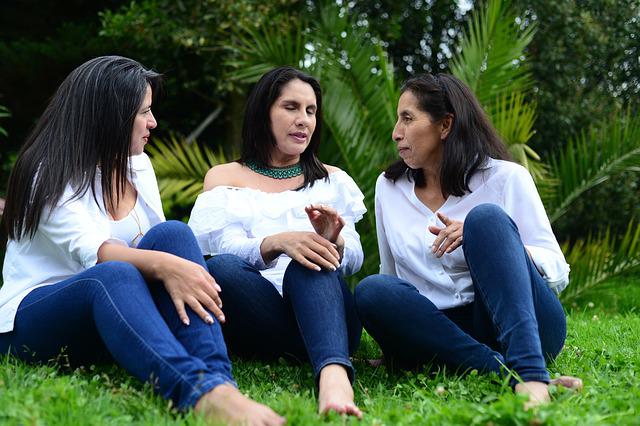Shelly Tygielski is an advocate for translating mindfulness practices and related self-care approaches into community action. Shelly herself epitomizes this translation, being a trauma counsellor for surviving victims of mass shootings in the US and for refugees from Ukraine in Poland. She advocates strongly for both self-care and community care and argues that you cannot do the latter without the support of the former, otherwise you will suffer “compassion fatigue” and burnout.
Shelly sees meditation and other mindfulness practices as central to self-care. She is a meditation teacher and herself practices meditation and what she calls “micro-practices”. These are brief mindfulness practices that can be employed by anybody throughout the day, particularly at times when you are time-poor and feeling stressed, distressed or anxious.
Shelly indicates that these micro-practices can be linked to some action you already undertake during the day, e.g. she employs the yogic technique of 4-7-8 breathing when washing her hands. This involves breathing in through the nose for four seconds, holding the breath for seven seconds and breathing out through the mouth for eight seconds (there are various combinations of these breathing processes, but basically the outbreath is longer than the in-breath or holding your breath). This breathing practice can be used when waiting for traffic lights or waiting for the jug to boil or food to cook on the stove. Richard Wolf in his book, In Tune: Music as the Bridge to Mindfulness, offers alternative breathing practices that are linked to the different times in music, e.g. ¾ time. He also offers deep listening approaches that can be employed as micro-practices.
How to show up for community care
Shelly provides the answer to this question in her new 10-day online course, The Power of Showing Up. I recently purchased this course and I am very impressed with the way she has structured the course to literally “take you by the hand” and lead you to self-empowerment and the capacity to undertake community care. She is not only a very inspirational speaker but totally transparent, sharing her own struggles and ways she overcame them. It is not as if she immediately fell into the practice of community care. She herself had to overcome the scars of being kidnapped at the age of two and inheriting “intergenerational trauma”.
Shelly provides support for developing our inner landscape and overcoming negative thoughts such as “I am not good enough” or “I don’t know enough” or “I feel like an impostor” (“impostor syndrome”). She strongly encourages us to overcome these obstacles (that she herself has experienced and overcome) and offers knowledge and pathways to develop a community of care – epitomized by her own creation, Pandemic of Love, which has matched the needs of 2 million people with other people who can provide concrete help and support.
Shelly’s course offers ways to help others in need so that they feel valued and appreciated. In the process, she helps us to understand our own inner world and what is holding us back. She offers a way to live a more meaningful life, aligned to our values and utilising our core knowledge and skills for community care.
Reflection
I was very inspired by Shelly’s presentation at the Self-Care Summit and since then have joined a community of care, ExtendaTouch (Caregivers Supporting Caregivers). I joined this community after receiving an invitation following publication of my blog post, Conscious Aging: Reframing for Health and Happiness.
As I participate in Shelly’s course, I am working on developing an online Community of Care that will involve people sharing their mindfulness practices, approaches to self-care and strategies for overcoming daily challenges. I hope to progress this community to a stage where we share our “self-care plan” and hold each other accountable for its implementation and ongoing refinement. As we grow in mindfulness together, we will be able to develop the necessary self-awareness, courage and creativity to overcome our life challenges and help others (in our online community and elsewhere) to do so.
Shelly also provides added inspiration and insight in her book, Sit Down to Rise Up: How Radical Self-Care Can Change the World.
_________________________________
Image by fernando zhiminaicela from Pixabay
By Ron Passfield – Copyright (Creative Commons license, Attribution–Non Commercial–No Derivatives)
Disclosure: If you purchase a product through this site, I may earn a commission which will help to pay for the site, the associated Meetup group, and the resources to support the blog.
